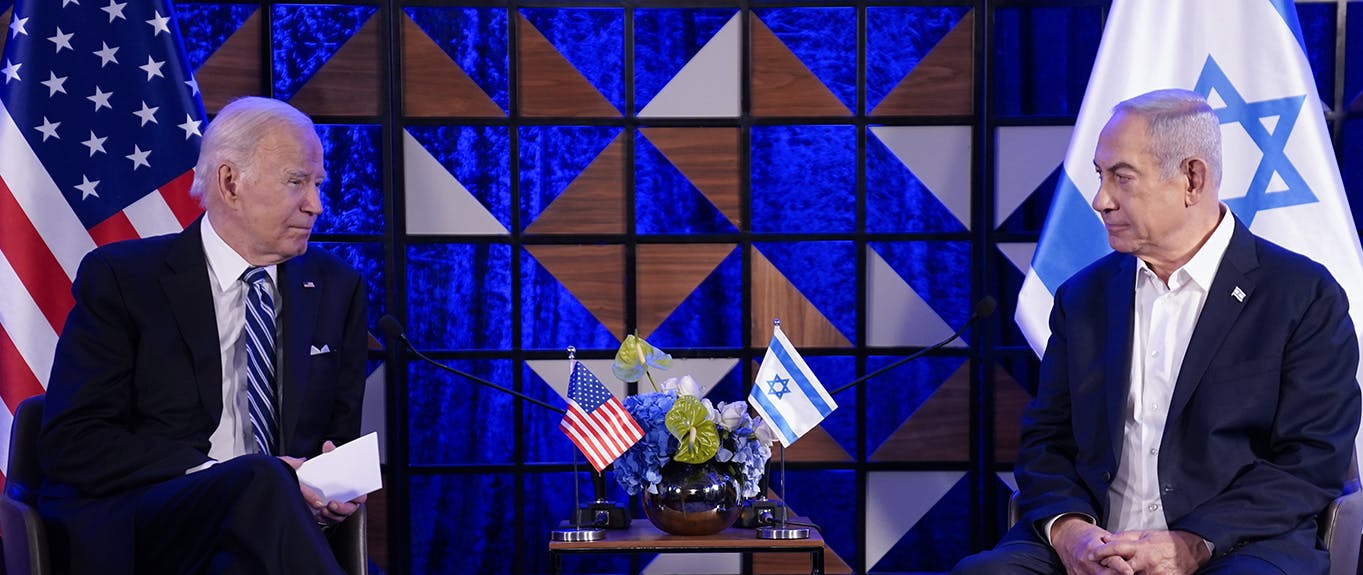WQ Dispatch October 2023
– Stephanie Bowen
In this WQ Dispatch we reflect on how the Israel-Hamas conflict is highlighting some of the most complex and tricky US diplomatic relationships.
When we undertook our spring 2022 issue Reconcilable Differences, we wanted to highlight the complex nature of foreign policy, and demonstrate how sometimes the United States has to work with administrations and leaders who are directly in opposition to its core values, even while working alongside some of its closest allies. That complexity is currently on display under the searing spotlight of the Hamas-Israel conflict, which began on October 7 when Hamas launched a surprise attack on Israel, and that has resulted in a death toll approaching 10,000, approximately 200 hostages, and a growing humanitarian crisis.
The current situation puts a spotlight on how US diplomacy in one area affects its broader foreign policy goals with that country—and throughout an entire region. One way that this is playing out is with efforts to manage the growing crisis. In a press statement following the first shipments of humanitarian supplies delivered to Gaza via Egypt’s Rafah border crossing, the US State Department stated that it came after “days of exhaustive US diplomatic engagement in the region,” largely with Egypt, who is a strategic ally even as their human rights record thwarts democracy. Diplomatic maneuvers—including with sometimes friend, sometimes foe Qatar—are ongoing as the US tries to secure the release of hostages, the delivery of more humanitarian supplies, and minimize civilian casualties.
The Israel-Hamas war is also shining a light on US diplomacy for longer-term regional goals that are now stalled at best, including the Biden administration’s efforts to secure normalized relations between Saudi Arabia and Israel. There was even speculation that those normalization efforts contributed to Hamas’ attack. And take for example Turkey, who has long been an ally despite ongoing transgressions that weaken democracy and human rights. They are now in a position to help mediate between Israel and Palestinians, demonstrating just why maintaining a friendly relationship might be prioritized, even as they side with Hamas and criticize Israel.
This collection of insights from Wilson Center experts—several of whom contributed to Reconcilable Differences—reveals just how tricky diplomacy can be in times of crisis. We’re watching events closely, and hoping that active diplomacy will help to restore peace and security in the region as quickly as possible.
Cover photo: President Joe Biden meets with Israeli Prime Minister Benjamin Netanyahu, Wednesday, October 18, 2023, in Tel Aviv. (AP Photo/Evan Vucci)
